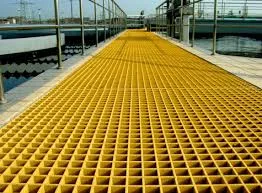
-
 Afrikaans
Afrikaans -
 Albanian
Albanian -
 Amharic
Amharic -
 Arabic
Arabic -
 Armenian
Armenian -
 Azerbaijani
Azerbaijani -
 Basque
Basque -
 Belarusian
Belarusian -
 Bengali
Bengali -
 Bosnian
Bosnian -
 Bulgarian
Bulgarian -
 Catalan
Catalan -
 Cebuano
Cebuano -
 China
China -
 China (Taiwan)
China (Taiwan) -
 Corsican
Corsican -
 Croatian
Croatian -
 Czech
Czech -
 Danish
Danish -
 Dutch
Dutch -
 English
English -
 Esperanto
Esperanto -
 Estonian
Estonian -
 Finnish
Finnish -
 French
French -
 Frisian
Frisian -
 Galician
Galician -
 Georgian
Georgian -
 German
German -
 Greek
Greek -
 Gujarati
Gujarati -
 Haitian Creole
Haitian Creole -
 hausa
hausa -
 hawaiian
hawaiian -
 Hebrew
Hebrew -
 Hindi
Hindi -
 Miao
Miao -
 Hungarian
Hungarian -
 Icelandic
Icelandic -
 igbo
igbo -
 Indonesian
Indonesian -
 irish
irish -
 Italian
Italian -
 Japanese
Japanese -
 Javanese
Javanese -
 Kannada
Kannada -
 kazakh
kazakh -
 Khmer
Khmer -
 Rwandese
Rwandese -
 Korean
Korean -
 Kurdish
Kurdish -
 Kyrgyz
Kyrgyz -
 Lao
Lao -
 Latin
Latin -
 Latvian
Latvian -
 Lithuanian
Lithuanian -
 Luxembourgish
Luxembourgish -
 Macedonian
Macedonian -
 Malgashi
Malgashi -
 Malay
Malay -
 Malayalam
Malayalam -
 Maltese
Maltese -
 Maori
Maori -
 Marathi
Marathi -
 Mongolian
Mongolian -
 Myanmar
Myanmar -
 Nepali
Nepali -
 Norwegian
Norwegian -
 Norwegian
Norwegian -
 Occitan
Occitan -
 Pashto
Pashto -
 Persian
Persian -
 Polish
Polish -
 Portuguese
Portuguese -
 Punjabi
Punjabi -
 Romanian
Romanian -
 Russian
Russian -
 Samoan
Samoan -
 Scottish Gaelic
Scottish Gaelic -
 Serbian
Serbian -
 Sesotho
Sesotho -
 Shona
Shona -
 Sindhi
Sindhi -
 Sinhala
Sinhala -
 Slovak
Slovak -
 Slovenian
Slovenian -
 Somali
Somali -
 Spanish
Spanish -
 Sundanese
Sundanese -
 Swahili
Swahili -
 Swedish
Swedish -
 Tagalog
Tagalog -
 Tajik
Tajik -
 Tamil
Tamil -
 Tatar
Tatar -
 Telugu
Telugu -
 Thai
Thai -
 Turkish
Turkish -
 Turkmen
Turkmen -
 Ukrainian
Ukrainian -
 Urdu
Urdu -
 Uighur
Uighur -
 Uzbek
Uzbek -
 Vietnamese
Vietnamese -
 Welsh
Welsh -
 Bantu
Bantu -
 Yiddish
Yiddish -
 Yoruba
Yoruba -
 Zulu
Zulu
frp demister
Understanding FRP Demisters An Essential Component in Industrial Applications
In various industrial processes, maintaining efficiency and safety while managing gas and liquid phases is crucial. One of the key components that facilitate this operation is the demister, particularly those made from Fiber Reinforced Plastic (FRP). This article delves into what FRP demisters are, their functionality, applications, and advantages.
What is a Demister?
A demister, also known as a mist eliminator or mist separator, is a device designed to remove liquid droplets from gas streams. In many industrial scenarios, gases can carry water vapor or liquid droplets, which can lead to process inefficiencies, equipment damage, or environmental concerns. Demisters work by increasing the contact time between gas and liquid, allowing for effective separation.
The Role of FRP in Demisters
FRP demisters utilize fiber-reinforced plastics as their primary material. FRP is composed of a polymer matrix reinforced with fibers, typically glass or carbon fibers. This composite material offers a unique blend of properties, making it especially advantageous for demister applications.
1. Corrosion Resistance One of the most significant benefits of FRP is its resistance to corrosion. In industrial environments where chemicals are present, traditional materials like metals may corrode over time. FRP remains unaffected, ensuring longevity and reducing maintenance costs.
2. Lightweight FRP is considerably lighter than metal counterparts, making it easier to install and handle. This lightweight attribute is particularly beneficial in large-scale operations where transportation and installation efficiency are paramount.
3. Customizability The manufacturing process of FRP allows for a high degree of customization. This means that demisters can be tailored to specific applications, featuring various designs, sizes, and configurations to meet unique operational needs.
4. Thermal Insulation FRP materials possess good thermal insulation properties, which can help protect equipment and reduce energy losses in processes that involve temperature-sensitive materials.
frp demister

Applications of FRP Demisters
FRP demisters find extensive applications in various sectors, including
- Chemical Processing In chemical plants, gases may carry acidic or corrosive vapors. FRP demisters effectively remove these droplets, ensuring that downstream equipment operates efficiently and without contamination.
- Oil and Gas In the oil and gas industry, demisters play a vital role in separating water from hydrocarbon gases. This is critical for maintaining high product quality and compliance with environmental regulations.
- Water Treatment In wastewater treatment facilities, FRP demisters are employed to separate droplets from the gas released during aeration processes, enhancing the purity of treated water.
- Food and Beverage The food industry requires stringent hygiene and safety standards. FRP demisters are utilized to ensure that gases released during food processing remain free from undesirable liquid contaminants.
Conclusion
In conclusion, FRP demisters are an integral component across various industries, providing an effective solution for liquid-gas separation. Their corrosion resistance, lightweight properties, customizability, and thermal insulation capabilities make them a preferred choice for many applications. As industries continue to prioritize efficiency, safety, and environmental compliance, the demand for reliable technology like FRP demisters will undoubtedly grow, reinforcing their role as essential equipment in modern industrial operations.
Understanding the importance of such devices is crucial for anyone involved in industrial process management, ensuring that systems operate smoothly while adhering to safety and environmental standards.









